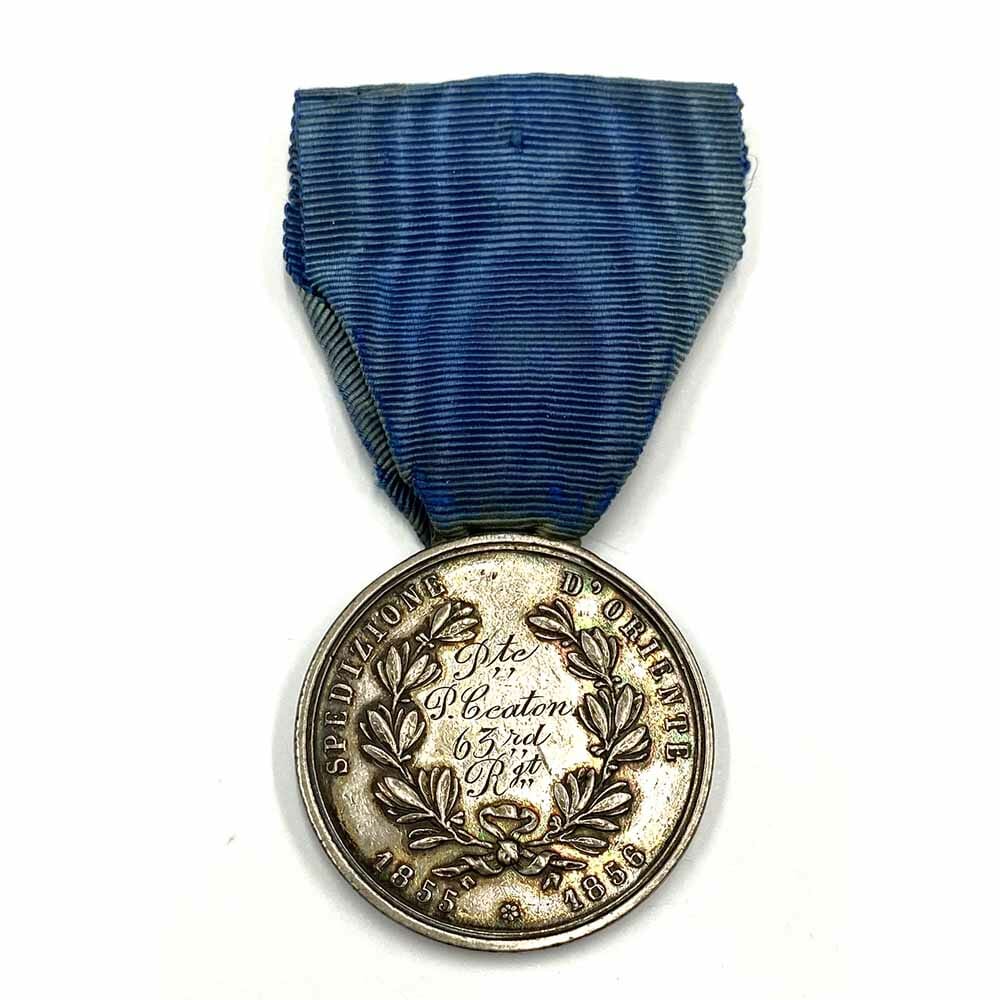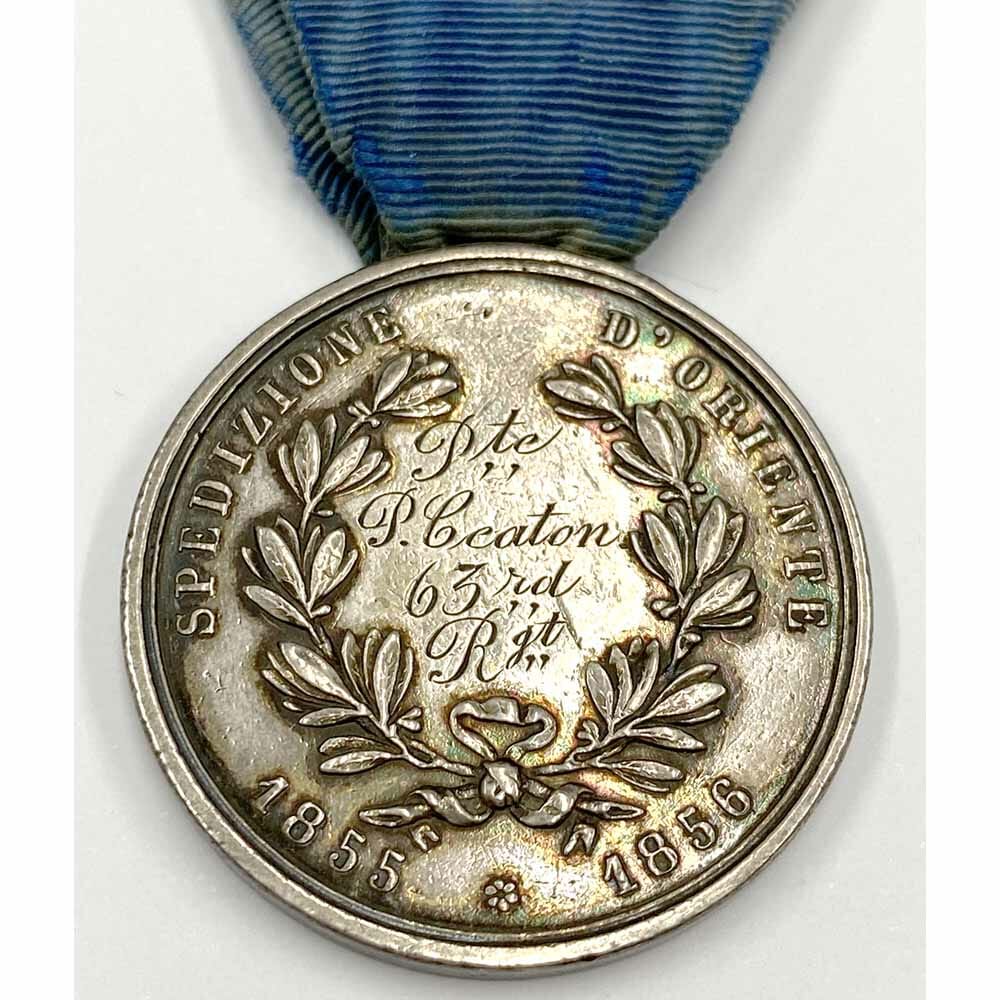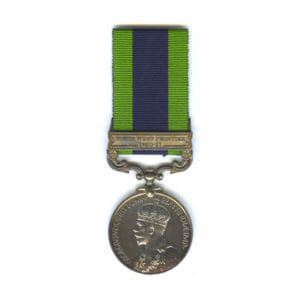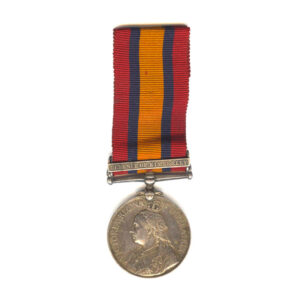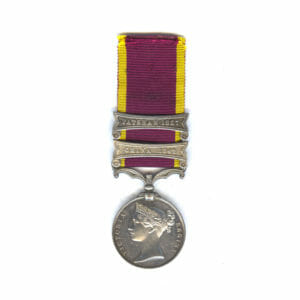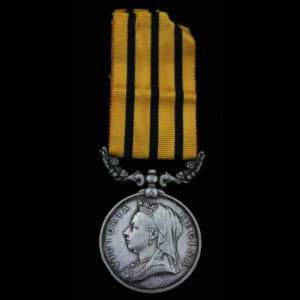Description
Al Valore Militare, Spedizione D’Oriente 1855-6, Private Patrick Ceaton, 63rd Regiment.
Only 4 Honours were awarded to the 63rd Regiment from Italy, 3 medals were awarded to Lieut Colonel The Hon R.A.G. Dalzell, Lieut Col C.E. Fairtlough and Captain F.T. Logan Paterson.
With the 4th one being Pte Ceaton, he was the sole non-officer to receive the medal.
An original Crimean War issue with F.G. hallmarks on original frayed and faded silk ribbon, Officially engraved as issued in attractive script on reverse: “Pte P. Ceaton 63rd Rgt.”
Full citation for award:
“Served the Eastern Campaign of 1854 and 1855, including the Battles of Alma, Balaklava, and Inkermann; Expedition to Kertch; Assault and Fall of Sebastopol; Capture of Kinburn. At the Battle of Inkermann, Private Ceaton attacked and stabbed two Russians. Was himself wounded, but refused to leave the field.”
Patrick Ceaton was an Irishman, born in Kililuney, Ballinasloe, Galway, Ireland during 1833.
He first attested for service with the 3rd Regiment of Foot on 4th May 1852 at the age of 19.
He saw the following overseas service in Canada and the Crimea:
Turkey and the Crimea: 1 year 10 months
Nova Scotia: 5 years 7 months
Canada: 1 year 8 months
He was truly a gallant individual and soldier, however his “professional conduct” was the polar opposite, he saw extensive service and his character was described as:
“His conduct has been bad – and he is not in possession of any good conduct badges.”
“He has been 9 times tried by court martial and 54 times entered in the Regimental Defaulter’s Book.”
He transferred to the 63rd Foot on 1st March 1854 and was deployed to the war in Crimea, his poor behaviour seems to have began following his service in the Crimean War, beginning from 12th December 1856 he spent his 1st Month and the whole of Christmas imprisoned by Regimental Court Martial.
Over the next 6 years he would be tried and imprisoned every few months, usually for being habitually drunk on duty. One can presume due to his multiple battles and close combat with the Russian forces in the Crimean war it left it’s mark on him throughout his life.
Having served for 10 years he took his discharge at the age of 30, choosing to remain in Windsor, West Canada and not return back to Ireland.
It is not known what became of Patrick following his discharge, he does not appear in the Irish or Canadian Census for 1871, he possibly went south to the United States, he had been discharged 2 years into the Civil War and possibly fought there.

